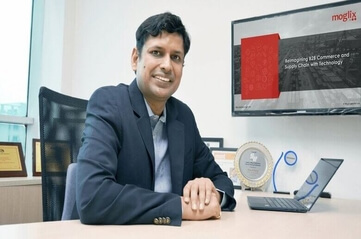Centralized Procurement
What Is Centralized Procurement?
Picking the appropriate system of control is always difficult for an organization. And when it comes to procurement, the decision becomes crucial for the supply chain management. Centralized procurement is the purchasing system wherein all branches of the agency, spread over vast geographic expanses, fulfill their procurement requisites through one common purchasing organization.
Usually, it is one specific department that purchases all goods and services as per the needs of all the company branches. A purchasing manager leads it. This structured process gives balance to the organization and reduces costs. It is especially beneficial in finding local vendors in proximity to the company branches.
What Are The Merits of Centralized Procurement?
Centralized procurement prevents duplicity and enjoys the merits of low transportation and inventory management costs. Many of its advantages are discussed here.
- Overhead Expense Reduction- Separate facilities for procurement require individual lease agreements, facility, security features, and insurance policy. These costs can be reduced enormously by one functional, well-equipped department with well-trained staff for procurement. Overhead cost reduction is one of the essential features of centralized procurement. Moreover, purchasing managers can buy in bulk at reduced costs and manage inventory as per company needs.
- Advanced Control- Managers spread out over several departments and out of touch with the employees may become inefficient without proper regulation. Centralization keeps the staff well-knit and alert. It helps build team cohesion, as people get acquainted with each others’ work styles and approaches. The organization is consistent over all the channels, with employees following the same rules regarding brand image and customer service.
- Relations with Suppliers- Centralized procurement encourages cultivating and maintaining good relations with suppliers. It always proves to be beneficial. Besides, it enables the purchase of standardized items through standardized procedures.
- Elimination of Intermediaries- Buying in bulk strengthens the bargaining position of the buyer. Moreover, they can tap into the advantage of quantity discounts. Direct contact with suppliers becomes possible. It eliminates the link of intermediaries, thus making the whole process faster and more efficient. Other advantages of centralized procurement include specialization, sharing knowledge and resources, saving time, uniformity in purchase policies, and greater efficiency.
What Are The Demerits of Centralized Procurement?
As good as it sounds, Centralized procurement has its own set of disadvantages.
- There might be a disparity between a large number of purchasing demands and what is being bought. Specific requirements may not be met perfectly.
- There can be delays in obtaining the requisite items. Moreover, Centralized procurement depends on an exquisitely trained staff who need expertise in purchasing all kinds of specific items.
- If multiple branches spread over large distances, it may not be feasible to have a centralized purchase department. However, enterprises can resolve the issue efficiently by authorizing regional, cost-effective purchases.
- This process, although efficient, gets complicated as the organization grows in size. The management gets complex, and timely replacement of faulty items becomes difficult. Some argue that this might adversely affect employee morale as well.
What Kind of Procurement Is Right For a Business?
The question often arises whether a centralized or decentralized procurement method is right for any given organization. If someone wants more control and transparency, centralization is the key. However, a “Center-led-structure” for procurement rather than a fully centralized process may give the organization just the right amount of flexibility as well as control, with a strategic stronghold on procurement, leaving the tactical purchases to individual business units.
What Is Centralized Procurement?
A Chief Procurement Officer or CPO is in charge of managing the sourcing and procurement of a business. The primary job of a CPO is to ensure that the supply chain management is functioning smoothly. With the world becoming one giant tech hub, supply market risks, the pressure of compliance, automation in matters of procurement have suddenly put forth numerous challenges for b2b supply chains. And it gave rise to the growing need for a procurement department with well-trained staff and an executive to oversee things. That executive is the CPO. There has been a rising demand to increase expenses under management and improve the visibility of the procurement division’s specialization to help in better cooperation among employees and departments.
Industries & Impact
 My vision for Moglix is to change the face of industrial commerce: Rahul Garg
My vision for Moglix is to change the face of industrial commerce: Rahul Garg
 Now and Next in the Infrastructure Sector
Now and Next in the Infrastructure Sector
 Moglix enabled Agile MRO Procurement at Scale through Workflow Digitization of large EPC company
Moglix enabled Agile MRO Procurement at Scale through Workflow Digitization of large EPC company
